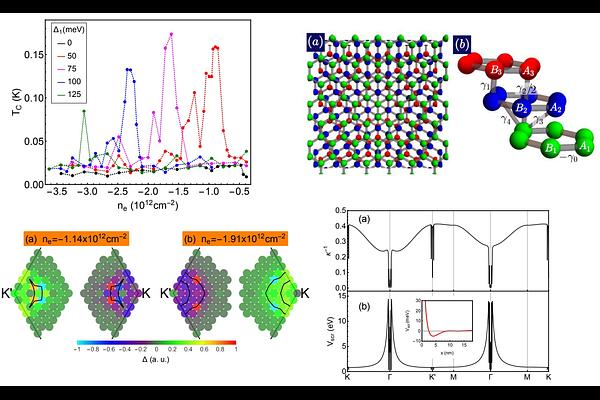Superconductivity from Repulsive Interactions in Rhombohedral Trilayer Graphene: a Kohn-Luttinger-Like Mechanism

Superconductivity from Repulsive Interactions in Rhombohedral Trilayer Graphene: a Kohn-Luttinger-Like Mechanism
Tommaso Cea, Pierre A. Pantaleón, Vo Tien Phong, Francisco Guinea
AbstractWe study the emergence of superconductivity in rhombohedral trilayer graphene due purely to the long-range Coulomb repulsion. This repulsive-interaction-driven phase in rhombohedral trilayer graphene is significantly different from those found in twisted bilayer and trilayer graphenes. In the latter case, the nontrivial momentum-space geometry of the Bloch wavefunctions leads to an effective attractive electron-electron interaction; this allows for less modulated order parameters and for spin-singlet pairing. In rhombohedral trilayer graphene, we instead find spin-triplet superconductivity with critical temperatures up to 0.15 K. The critical temperatures strongly depend on electron filling and peak where the density of states diverge. The order parameter shows a significant modulation within each valley pocket of the Fermi surface.